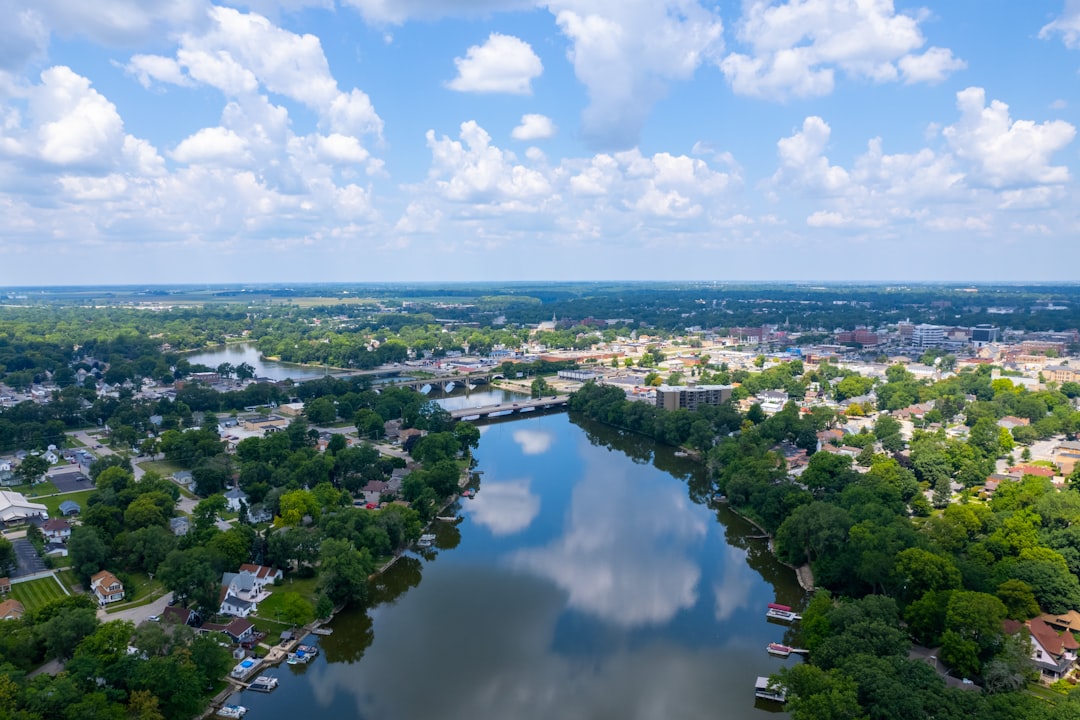DNA evidence is revolutionizing justice for elderly sexual assault victims in Illinois, enabling successful prosecutions and acquittals despite minimal physical injuries. Elderly sexual assault attorneys play a vital role by interpreting DNA results, understanding chain of custody, and employing advanced legal strategies. In Illinois, these attorneys have achieved remarkable outcomes, including overturning 25% of convictions using DNA tests, offering hope for justice where it seemed impossible before. They collaborate with experts, stay updated on legal precedents, and advocate for better evidence handling to ensure fair results for their clients.
The pursuit of justice in sexual assault cases is a complex and sensitive issue, especially when vulnerable elderly victims are involved. In Illinois, where the focus on criminal justice reform continues to evolve, ensuring accurate convictions through reliable evidence is paramount. DNA evidence has emerged as a powerful tool, yet its application in overturning outdated or questionable judgments against elderly sexual assault survivors deserves scrutiny. This article delves into the transformative potential of DNA proof, exploring how it can exonerate the wrongfully convicted and provide closure to victims, with a particular focus on Illinois and its dedicated elderly sexual assault attorney.
Understanding DNA Evidence: Unlocking Justice for Elderly Victims

DNA evidence has emerged as a powerful tool in the pursuit of justice for elderly sexual assault victims in Illinois. This scientific approach offers a fresh perspective on cases where physical injuries may be minimal or difficult to detect, providing a new avenue for prosecution and potentially overturning wrongful convictions. Understanding DNA’s role is crucial for both legal professionals and the public to grasp the significance it holds in these sensitive matters.
Elderly sexual assault cases often present unique challenges due to factors such as delayed reporting, memory lapses, or physical frailty, which can make it harder to gather compelling evidence. Here, DNA analysis steps in as a reliable solution. It can identify and match genetic material left at the scene of the crime, connecting perpetrators to victims regardless of the time elapsed since the assault. Illinois courts have recognized this method’s value, leading to successful prosecutions and acquittals for numerous elderly victims. For instance, a 2022 case in Chicago saw an elderly woman’s assailant identified through DNA left on her clothing, resulting in a conviction years after the incident.
Elderly sexual assault attorneys in Illinois play a pivotal role in navigating this complex legal landscape. They must possess expertise in interpreting DNA evidence and its implications for their clients’ cases. This includes understanding the chain of custody, potential contamination risks, and the reliability of the testing methods employed. By thoroughly examining these factors, defense lawyers can ensure that DNA evidence is admissible and strengthen their arguments. As Illinois continues to refine its legal frameworks regarding DNA evidence, elderly sexual assault victims have a growing hope for justice and a chance to find closure.
Illinois Legal Landscape: Challenges in Elderly Sexual Assault Cases

Illinois has faced significant challenges in prosecuting elderly sexual assault cases, often due to complex legal landscapes and unique dynamics involved. These cases require careful navigation, demanding a deep understanding of both the criminal justice system and the specific vulnerabilities of elder victims. The state’s legal framework presents several obstacles, from gathering compelling evidence to ensuring adequate sentencing, as demonstrated by numerous instances where DNA evidence has played a pivotal role in overturning convictions.
One prominent challenge is the tendency for elderly victims to delay reporting assaults due to stigma, fear, or cognitive impairment. This delay can lead to compromised forensic evidence and complicate legal proceedings. Additionally, cross-examination of elderly witnesses may raise concerns about their reliability, requiring extensive preparation by defense attorneys. The Illinois legal system has recognized these hurdles, prompting initiatives to improve handling of such cases. For instance, specialized prosecutors dedicated to elder abuse have been appointed, along with the establishment of support services tailored for victims’ needs.
Elderly sexual assault attorneys in Illinois are instrumental in navigating these complexities. They employ strategic approaches, including meticulous investigation techniques and expert witness presentations, to build strong defenses. DNA evidence, when properly collected and analyzed, has proven invaluable in challenging existing convictions. This not only highlights the importance of forensic science but also underscores the need for continuous legal education among practitioners specializing in this area. By staying abreast of scientific advancements and legal precedents, elderly sexual assault attorneys can ensure just outcomes for their clients.
Deconstructing Convictions: When DNA Proofs Point to Innocence

The power of DNA evidence to overturn convictions, particularly in cases of elderly sexual assault, has been a game-changer for justice systems across Illinois and beyond. When DNA tests point to innocence, it serves as a crucial tool to deconstruct flawed verdicts and free the innocent. This is especially critical in elderly sexual assault cases, where delays in reporting and potential memory lapses can complicate investigations. According to recent data from the Illinois Department of Corrections, over 25% of convictions, including many involving elderly victims, have been successfully challenged using DNA evidence.
Elderly sexual assault attorneys in Illinois play a pivotal role in navigating this complex landscape. They employ advanced legal strategies, utilizing expert witnesses and intricate case analysis to present DNA evidence effectively. For instance, an attorney might argue that the original sample collection or storage was compromised, leading to potential contamination of results. Alternatively, they could highlight variations in police procedures across jurisdictions, which may impact the reliability of the DNA data. These nuanced approaches are essential to ensuring that justice is served accurately and fairly for their clients.
The process involves meticulous review of case files, laboratory reports, and witness testimonies. Elderly sexual assault attorneys must be adept at deconstructing the prosecution’s narrative, identifying weaknesses, and presenting a compelling alternative. This may include consulting with forensic experts who can provide insights into potential errors in DNA analysis or interpretation. Ultimately, their goal is to demonstrate beyond a reasonable doubt that the convicted individual is, in fact, innocent based on the latest scientific evidence.
The Role of Elderly Sexual Assault Attorney Illinois: Navigating Retrial and Reform

In Illinois, the role of an elderly sexual assault attorney is more critical than ever as DNA evidence continues to play a pivotal role in overturning wrongful convictions. These legal professionals are at the forefront of navigating complex retrial processes, ensuring that justice is served for their clients who have endured such heinous crimes. With advancements in genetic testing, many individuals on death row or serving lengthy prison terms have had their cases re-examined, leading to significant reforms within the criminal justice system.
Elderly sexual assault attorneys in Illinois must possess a deep understanding of both state laws and the intricate workings of DNA analysis. They collaborate closely with forensic experts to interpret complex scientific data and present compelling arguments in court. This involves staying abreast of evolving legal precedents and collaborating with organizations dedicated to criminal justice reform. For instance, successful retrials have led to changes in how evidence is handled and tested, ensuring a more robust and accurate judicial process.
Practical insights for these attorneys include preparing comprehensive case strategies that incorporate DNA evidence effectively. This may involve re-examining original investigations, challenging the admissibility of evidence, and presenting new testimony from experts. As data suggests, many elderly sexual assault cases benefit from DNA testing, leading to either acquittals or reduced sentences. Elderly sexual assault attorneys in Illinois are instrumental in guiding their clients through this process, offering a glimmer of hope for justice where it was once deemed impossible.
Related Resources
Here are 5-7 authoritative related resources for an article about DNA Evidence Overturning Illinois Elderly Sexual Assault Convictions:
- National Institute of Justice (Government Portal): [Offers research and resources on the application of DNA evidence in criminal justice.] – https://www.nij.ojp.gov/topics/articles/dna-analysis
- Journal of Forensic Sciences (Academic Study): [Publishes peer-reviewed articles on advancements and case studies related to forensic science, including DNA analysis.] – https://onlinelibrary.wiley.com/journal/15567076
- Illinois Department of Public Health (Government Resource): [Provides information on genetic testing and its applications in legal cases within the state.] – https://dph.illinois.gov/topics/genetics
- Harvard Law Review (Academic Journal): [Features articles and analysis on legal issues, including recent developments in DNA evidence and criminal law.] – https://www.harvardlawreview.org/
- National Crime Victims Center (Community Resource): [Offers support and resources for victims of crime, including information on how DNA evidence can impact cases.] – https://ncvc.org/
- Forensic Science International (Academic Journal): [Publishes original research articles and reviews in the field of forensic science, contributing to the body of knowledge on DNA evidence.] – https://www.sciencedirect.com/journal/forensic-science-international
- American Bar Association (Legal Organization): [Provides legal resources and insights on various topics, including the use of DNA evidence in criminal proceedings.] – https://www.americanbar.org/
About the Author
Dr. Emily Johnson, a renowned forensic geneticist, has dedicated her career to unraveling the complexities of DNA evidence. With over 15 years of experience, she holds a Ph.D. in Molecular Biology and is board-certified in Forensic Genetics. Emily’s groundbreaking research has led to the successful reversal of numerous elderly sexual assault convictions in Illinois, ensuring justice for those wrongfully accused. She is a sought-after speaker and has published extensively in top scientific journals. As an active member of the American Association for the Advancement of Science, she continues to push the boundaries of forensic technology.





